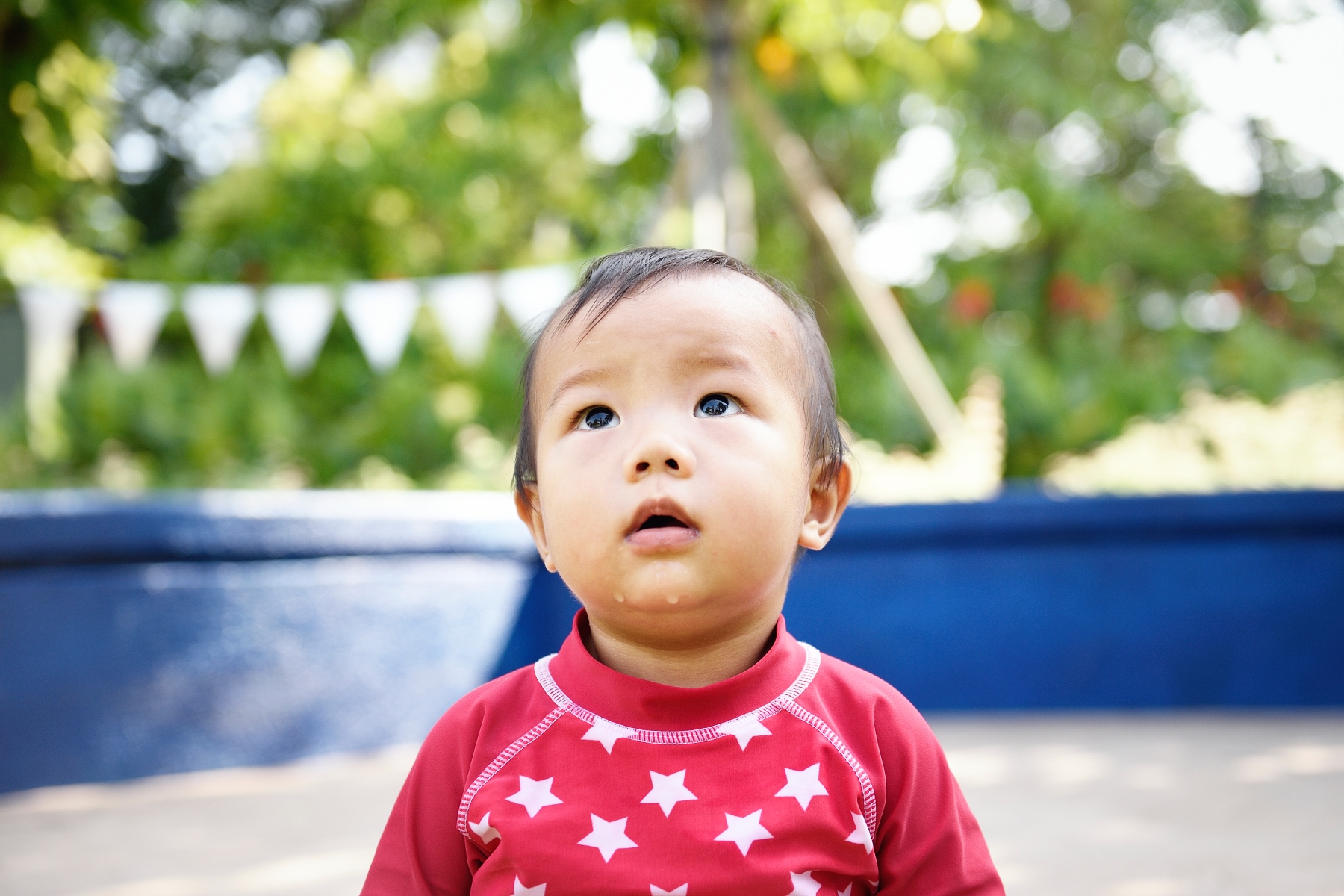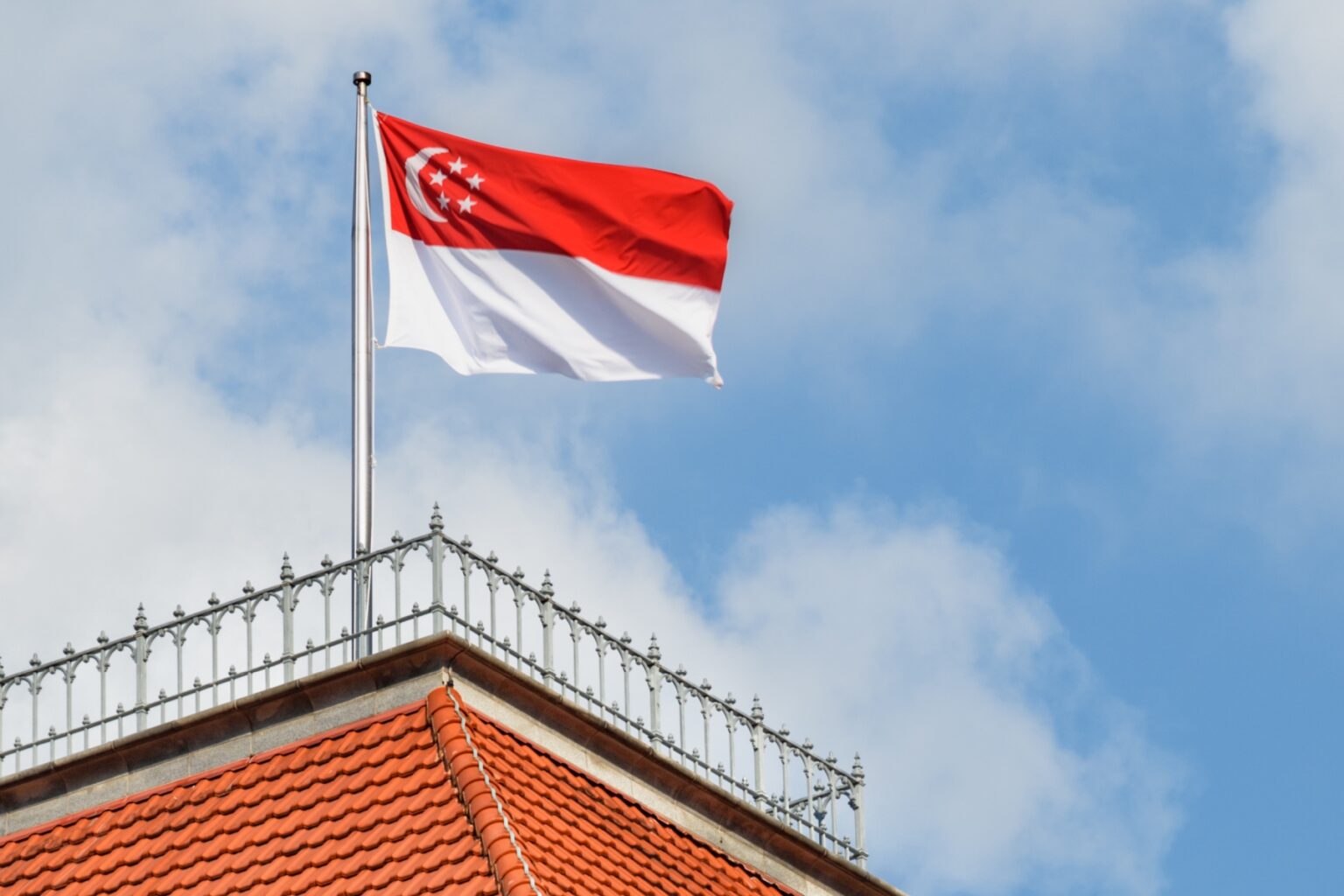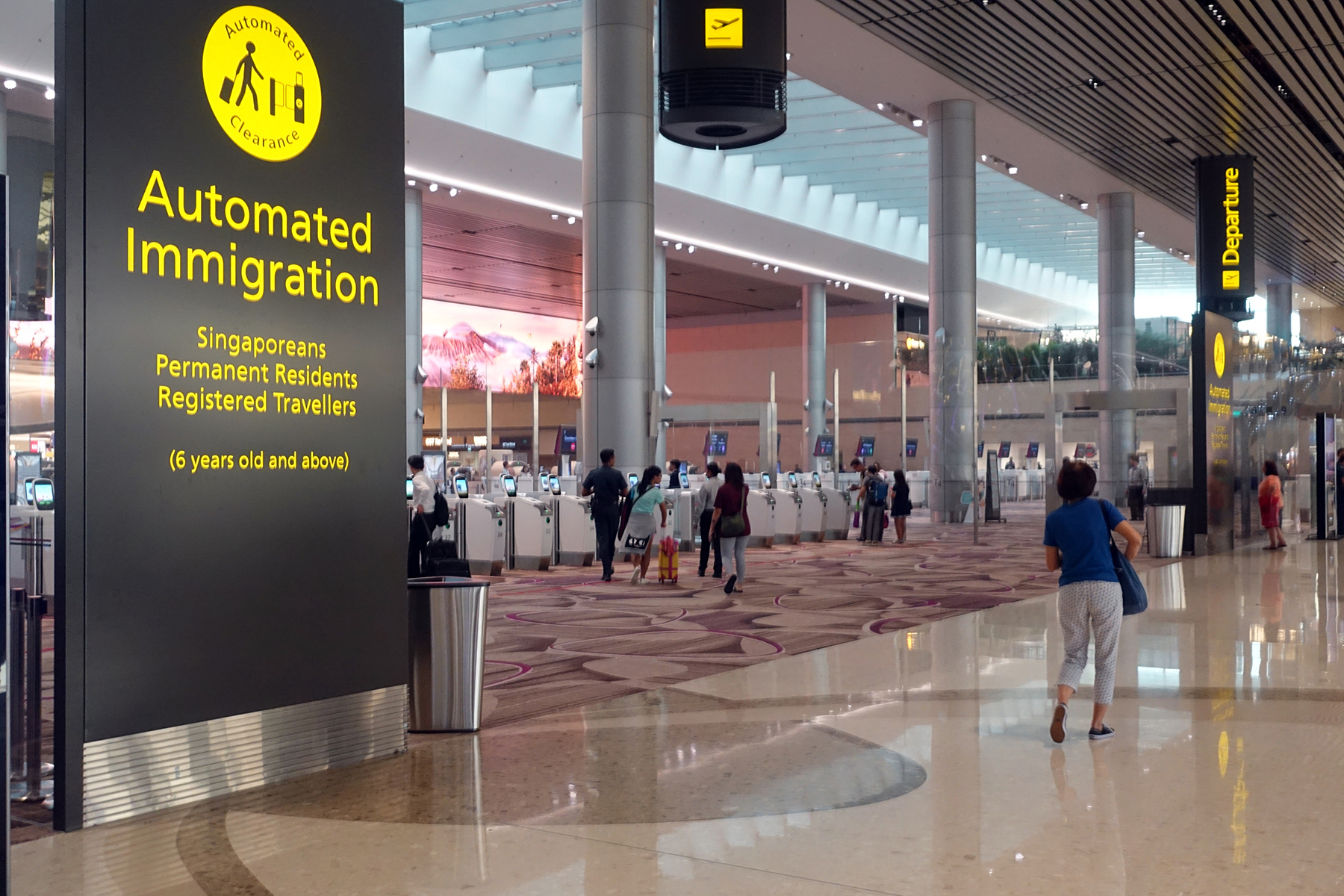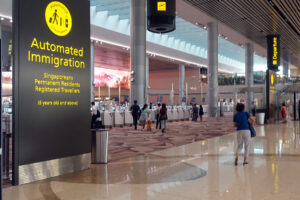Getting Singaporean citizenship allows expats to fully integrate and unlock all the benefits offered to those living long-term in Singapore. Citizens enjoy advantages like subsidized Housing Development Board (HDB) flats, access to healthcare subsidies, lower rates for education, and voting in elections. One of the most glowing advantages, however, is obtaining a Singaporean passport with visa-free access to 189 destinations.
On the other hand, the country’s strict single citizenship policy means you’ll need to renounce your current nationality. To discover if this is for you, read on for the following topics:
- Citizenship in Singapore
- Citizenship by birth in Singapore
- Citizenship by descent in Singapore
- Citizenship by naturalization or residence in Singapore
- Citizenship by marriage in Singapore
- Citizenship as a resident of an overseas territory in Singapore
- Can you obtain Singaporean citizenship as a refugee?
- Are there any exceptions or special cases for Singaporean citizenship?
- Citizenship test in Singapore
- Passports in Singapore
- Can you have dual nationality in Singapore?
- How do you lose or renounce your Singaporean citizenship?
- Singapore citizenship appeals and complaints
- Useful resources
Sirelo
It's no secret that moving abroad can be stressful. Sirelo's team of removal advisers is here to help. They provide five free quotes from international shipping companies so you can find the best options at the best prices. Take the stress out of your relocation to Singapore with Sirelo.
Citizenship in Singapore
The city-state of Singapore is one of the most prosperous and liveable countries in Asia. It boasts a thriving economy, low crime rates, excellent healthcare and education systems, green and clean urban environments, and rich cultural diversity.
The Immigration & Checkpoints Authority (ICA) oversees all matters regarding immigration in the country. Compared to other countries, Singapore has strict residency requirements that favor skills, wealth, and cultural fit over place of birth or family connections. This, in turn, aligns with the nation-building ideology of growing a core of loyal, contributing citizens rather than unrestricted immigration.

As of 2023, there are around 3.6 million Singapore citizens worldwide. These make up the majority of the country’s total resident population of 4.1 million. There are also 538,600 permanent residents who can apply for citizenship after fulfilling the relevant criteria.
An estimated 179,500 citizens live overseas (as of 2021). This diaspora population accounts for approximately 5% of total global citizens.
In 2022, approximately 23,100 new Singapore citizenships were granted, of which 1,300 went to children born abroad to Singaporean citizens.
Singapore practices both jus soli (right of birth) and jus sanguinis (right of nationality law) principles for citizenship eligibility. In general, citizenship policy leans more towards jus sanguinis descent from a parent possessing Singaporean citizenship. Naturalization of non-citizen permanent residents also requires fulfilling strict criteria.
Citizenship by birth in Singapore
In Singapore, a child born in the country can only automatically become a citizen at birth if at least one of their parents is a citizen themselves.
How do you apply for citizenship through birth?
A child born in Singapore to foreign parents who meets the residency criteria can apply for citizenship.
To apply, the parent (who has permanent residence) logs in to the ICA e-service portal using their SingPass. They can then submit an online application on their youngster’s behalf or, if needed, they can apply for the whole family.
Parents will need to provide relevant documents for their child’s application, including birth certificates, passports, and identity cards.
The processing fee is S$100 per application and approvals typically take 12 months.
Citizenship by descent in Singapore
Singapore operates on the principle of jus sanguinis. This means a child born to at least one Singaporean citizen is eligible for citizenship, regardless of the child’s country of birth.
If a child is born in Singapore to at least one citizen parent, citizenship is automatically granted at birth. Simply register the newborn with the government and they will be issued a Singaporean certificate confirming their citizen status.
However, for those born overseas, the Singapore citizen parent(s) must submit a regular application to register the child as a citizen. This is only possible if the newborn’s parents have been legally married at the time of the birth and the baby is registered in the country it was born.
How do you apply for citizenship through descent?
To request citizenship, the parent possessing Singaporean citizenship logs in to the ICA e-service portal using SingPass, uploads the relevant documents, and sends in the application.
If the application is submitted more than one year after the child’s birth, the following documents must also be presented:
- Explanation letter for late application
- Last 6 months pay slips
- Parent’s employment letter
- Self-employed parents to provide a business registration certificate and financial statements
The application fee per child is S$100 and approval generally takes between 3–4 months. Once everything has been authorized, parents can apply for their child’s Singapore passport
At 16 years of age, the child must collect their citizenship certificate in person. They must also take a pledge at 21 years old.
Citizenship by naturalization or residence in Singapore
You need to be a Singaporean permanent resident for at least two years to be eligible for citizenship through naturalization or residence.
The following requirements must also be met:
- Employed with a steady income: Self-employed applicants should provide financial statements
- Have no criminal records
- Have the intent to reside permanently in Singapore
- Show integration into society: This is by speaking English and/or Mother Tongue languages, having Singaporean acquaintances, and community involvement
- You must be at least 21 years old when applying: If married with children under 21, you can apply together as a family
How do you apply for Singapore citizenship by naturalization/residence?
If you satisfy the above criteria, you can submit an online application through the ICA e-service portal using SingPass. Applicants will need to fill in the forms and questionnaire, upload supporting documents (PDF), make the payment of S$100 per adult or S$18 per child, and submit.

It then takes approximately 12 months for your application to be processed and approved.
If the application is accepted, the applicant will receive an Approval In Principle (AIP) letter. They can complete the mandatory 2-month Singapore Citizenship Journey (SCJ) program organized by ICA. This involves an online course, experiential tour, and community sharing session aimed at integrating new citizens.
Next, the applicant has to renounce their foreign citizenship by making a formal application at their home country’s embassy in Singapore. This process can take several months.
Once they receive the renunciation confirmation letter, they can attend their registration appointment with the ICA. Here, they will take the citizenship pledge and pay the citizenship fee of S$70, plus S$10 for an identity card for those aged 16 years and older.
The final step is to attend an official ceremony where new citizens receive their certificates and identity cards.
Citizenship by marriage in Singapore
When an expat marries a Singaporean local, they are not automatically granted citizenship.
Instead, to become a citizen through marriage, you’ll first need to become a permanent resident of Singapore and fulfill the following requirements:
- Be married for at least 2 years to a Singaporean spouse
- Demonstrate income stability and the ability to support a family
- Display reasonable integration into society
- Have been a permanent residence for at least 2 years
- Have no criminal records
Unlike citizenship by naturalization, there is no age requirement for citizenship by marriage.
How do you apply for citizenship by marriage?
To apply for citizenship via marriage, you need your spouse (who is a Singaporean citizen) to sponsor your application. This is done by logging into the ICA e-service portal with SingPass and submitting the application form along with supporting documents (PDF).
During the application, you will need to provide details such as personal particulars, employment, income, education, family background, and integration into Singapore for assessment purposes. You may also be called for an interview to determine your suitability.
As is the case with applying through naturalization or residence, it takes approximately 12 months for your citizenship application to get approved.

Upon approval, you will need to follow the same steps as those applying through naturalization. Therefore you will need to:
- Complete the SCJ program
- Renounce your existing citizenship
- Take the pledge and obtain your citizenship
Please note that the application processing fee is S$100 per person with an additional S$70 citizenship fee if approved.
Citizenship as a resident of an overseas territory in Singapore
Singapore was under British colonial rule from 1819, following the establishment of a trading post by Sir Stamford Raffles. This period also included a brief Japanese occupation from 1942 to 1945.
Later, in 1963, the country became part of the Federation of Malaysia, only to gain independence as a separate republic in 1965.
Despite its past ties with these territories, British, Japanese, and Malaysian citizens do not get any special citizenship considerations in Singapore. All nationalities must meet the eligibility criteria outlined by the ICA if they wish to apply for citizenship.
Can you obtain Singaporean citizenship as a refugee?
Singapore does not have specific national laws or legislation for asylum seekers. Though the country has accepted the 1951 Refugee Convention and 1967 Protocol, there is no legal framework for refugees to gain long-term residency or apply for citizenship.
The United Nations High Commissioner for Refugees (UNHCR) handles refugee status determination and registration in Singapore. Without official status from the government, asylum seekers cannot apply for permanent residency or citizenship in the country.
This lack of national asylum laws means that certified refugees have limited options in the country. They cannot integrate locally, cannot work, and often rely on assistance from the UNHCR while waiting for resettlement to a third country.
Are there any exceptions or special cases for Singaporean citizenship?
There are no exceptions or special fast-track options for obtaining Singaporean citizenship. You can only apply if you have been a permanent resident in the country for at least two years. No groups, even those who have served in the Singapore military, are exempt from this requirement.
Any nationality can apply for Singaporean citizenship and the eligibility criteria and process remain the same for all applicants.

Barring willful illegal behavior, the path to Singaporean citizenship through permanent residency is open to all. No shortcuts exist, and the timeline cannot be accelerated based on an applicant’s circumstances or profile.
Citizenship test in Singapore
There is no formal citizenship test required when applying for Singaporean citizenship. However, those whose application is approved are required to complete the SCJ program.
This online learning scheme covers the country’s history, shared values, systems, culture, and aspirations. Applicants have to complete five modules, which take 1–2 hours each.
Accepted applicants have two months to complete the e-Journey before attending the Singapore Experiential Visit – an in-person event where candidates are introduced to the country’s most prized historical landmarks. Helpful online resources are also provided within the scheme’s portal.
While those aged 16 and above have to complete all components of the program, younger applicants are exempted from the e-Journey. There are also no fees charged to complete the SCJ.
Passports in Singapore
Singaporean citizens can apply for a passport online via the ICA e-Service portal using their Singpass. They can also submit a passport application by post or deposit box to the ICA Building.
The fee is S$70 for online/mail/deposit box applications or S$80 if you’re applying over the counter. The passport process takes 1–2 weeks for local applicants and 4–6 weeks for overseas citizens.
For more information, read more about getting a passport in Singapore.
Can you have dual nationality in Singapore?
Dual citizenship is only permitted in Singapore for citizens under 21 years old. Once they reach this age, they have to renounce their foreign citizenship and take the Oath of Renunciation, Allegiance and Loyalty (ORAL) to remain a Singaporean citizen.
Those applying who are older than 21 years old must renounce their foreign citizenship and surrender any foreign passports before they can be registered as citizens. These rules apply to people of all nationalities.
How do you lose or renounce your Singaporean citizenship?
The Singaporean government can revoke a person’s citizenship under certain conditions, including:
- Acquiring citizenship of another country by application
- Disloyalty or disaffection towards Singapore
- Obtaining citizenship by fraud, false representation, or concealment of facts
- Refusal to do National Service for male citizens
- Residing outside Singapore for a continuous period of 10 years or more without a valid Singapore passport
Singaporeans who wish to renounce their citizenship need to submit the Renunciation of Singapore Citizenship form (PDF) to the ICA. They must be at least 21 years old and have gained citizenship or permanent residence status of another country before their renunciation.
Those who voluntarily renounce Singaporean citizenship or have lost it can apply to re-register. However, they must meet the eligibility criteria again and go through the same process as any foreign national, as there is no particular provision for reinstatement. Approval is not guaranteed and is assessed on a case-by-case basis.
Singapore citizenship appeals and complaints
If your Singapore citizenship application gets rejected, you can submit an appeal to have your case reviewed.

To appeal, you can send an email to the ICA. You can start by stating your NRIC number or application reference number and then explain why you think you should qualify for Singapore citizenship. You can also provide any supporting documents.
Keep in mind, however, that the ICA will likely reject your appeal if there are no new circumstances to consider compared to your previous application.
The processing time for citizenship appeals varies from case to case, however, it typically takes a few months for the ICA to return your request.
If you remain unhappy with the outcome of your appeal, you may want to consider reapplying for citizenship once you have new developments that strengthen your application.
Useful resources
- Immigration & Checkpoints Authority (ICA) – the official Singapore government website for immigration matters, including citizenship applications
- Ministry of Defense – information on National Service obligations for male Singapore citizens and permanent residents
- Ministry of Manpower – learn more about employment passes and work visa options in Singapore
- Singapore Journey – the official website for the SCJ program





